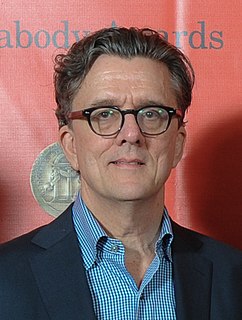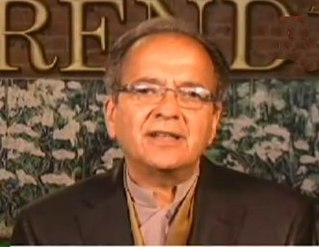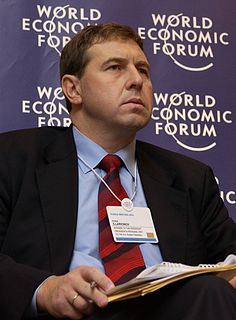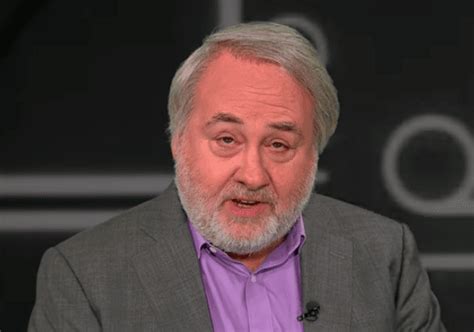Top 166 Gdp Quotes & Sayings - Page 3
Explore popular Gdp quotes.
Last updated on November 9, 2024.
The reductionist measure of yield is to agriculture systems, what GDP is to economic systems. It is time to move from measuring yield of commodities, to health and well-being of ecosystems and communities. Industrial agriculture has its roots in war. Ecological agriculture allows us to make peace with the earth, soil and the society.
I'm comparing Americans to international peers in terms of GDP, educational system - the sort of benchmarks we used to designate a so-called developed society. In that sense, we are outliers. Are we suckers? Yes, but it's not just that. That puts too fine a point on what I am saying. We're not idiots and victims. It's about us as a people, compared with, say, Canadians, believing whatever we believe because, well, we're Americans, we feel this way without regard for what scholars and scientists say.
What it means to be human is to bring up your children in safety, educate them, keep them healthy, teach them how to care for themselves and others, allow them to develop in their own way among adults who are sane and responsibile, who know the value of the world and not its economic potential. It means art, it means time, it means all the invisibles never counted by the GDP and the census figures. It means knowing that life has an inside as well as an outside. And I think it means love.
India does not need to become anything else. India must become only India. This is a country that once upon a time was called 'the golden bird'. We have fallen from where we were before. But now we have the chance to rise again. If you see the details of the last five or ten centuries, you will see that India and China have grown at similar paces. Their contributions to global GDP have risen in parallel, and fallen in parallel. Today's era once again belongs to Asia. India and China are both growing rapidly, together. That is why India needs to remain India.
Most of the productivity gains appear to go to the top 1 percent. Most people don't have enough income and as a result, they borrow additional money by using their credit card and they fall into high debt. The result of the growing income gap is a slower growing GDP (too few people with money to spend) and a rising tide of indebtedness.
India for sure is a mobile-first country. But I don't think it will be a mobile-only country for all time. An emerging market will have more computing in their lives, not less computing, as there is more GDP and there is more need. As they grow, they will also want computers that grow from their phone.
The US economy, because it's so energy wasteful, is much less efficient than either the European or Japanese economies. It takes us twice as much energy to produce a unit of GDP as it does in Europe and Japan. So, we're fundamentally less efficient and therefore less competitive, and the sooner we begin to tighten up, the better it will be for our economy and society.
It is argued by our GDP obsessed policy planners that eventually the money being made by the stock market operators or the IT industry would trickle down to the poor farmers in terms of ancillary jobs that would be created. But the fact is, that this has not happened, despite the boom in the stock market and the IT industry.
The political establishment has brought about the destruction of our factories, and our jobs, as they flee to Mexico, China and other countries all around the world. Our just-announced job numbers are anemic. Our gross domestic product, or GDP, is barely above 1 percent. And going down. Workers in the United States are making less than they were almost 20 years ago, and yet they are working harder.
In the eighties and nineties, the innovation agenda was exclusively focused on enterprises. There was a time in which economic and social issues were seen as separate. Economy was producing wealth, society was spending. In the 21st century economy, this is not true anymore. Sectors like health, social services and education have a tendency to grow, in GDP percentage as well as in creating employment, whereas other industries are decreasing. In the long term, an innovation in social services or education will be as important as an innovation in the pharmaceutical or aerospatial industry.
You know that Estonia, based largely on how successful Skype was, built by Estonian developers, that was a tenth of the entire country's GDP when eBay bought it. That was like a decade ago, it was f****** Estonia, they were behind the Iron Curtain two decades earlier. They're now pushing for K-12 education in computer science in public schools. They've gotten the message. They know how much value that can bring.
While we have put an utmost emphasis on Gross Domestic Products (GDP) as a barometer for the overall economy until now, we have not paid much attention in detecting a level of social welfare. We, as a member of the society, must now take steps to create an index to indicate other critical elements to be focused on in order to restore reliability of world statistics.
It's my guess that something like 5% of GDP goes to money management and itsattendant friction. I define it broadly - annuities, incentive pay, all trading, etc. Nobody else has used figures that high, but that's my guess. Worst of all, the people doing this are among the best and the brightest. Hundreds and thousands of engineers, etc. are going into hedge funds and investment banking. That is not an intelligent allocation of the brainpower of the civilization.
Ultimately, the current argument is "not having net neutrality will hurt innovation," and you can make that argument, but I would rather make the public good argument, which is not just about innovation or nurturing new companies that will add to the nation's GDP, it's actually about creating a democratic public sphere.
You have to have a government to provide you with legal order, with stability, enforcement of property rights, enforcement of contracts, definition of rules and regulations - the rules of the game, so to speak - and to provide certain shared goods and services, public services. Several people have tried to estimate this and they come out with figures like government spending at 15% of GDP. In the modern world it has gone to 40% or above. So we are way beyond the optimal, and that is easier to say than what the optimum is.
You don't actually find a strong correlation between- top-line GDP growth and making money in the market. It- it seems like you should. The fastest-growing countries should give you the highest return. They simply don't. But, there's only four of us- that- that believe that story. Everyone else in the world believes that if you grow fast like China, you'll outperform in the stock market.
Today's national income statistics make it appear that Goldman Sachs is productive. As if Donald Trump plays a productive role. The aim is to make it appear that people who take money from the rest of the economy without working are productive, despite not really providing any service that actually contributes to GDP and economic growth.
We have to live with the rest of the world. And it's a mistake, in my view. Trade has generally developed in this country. We actually export 12 or 13 percent of our GDP. It was only 5 percent in 1970. But it benefits us. It benefits the rest of the world. It doesn't benefit the steelworker maybe in Ohio. And that's the problem that has to be addressed, because when you have something that's good for society, but terribly harmful for given individuals, we have got to make sure those individuals are taken care of.
The United States of America was a pirate nation for the first one hundred years of its existence, ripping off the patents and trademarks of the imperial European powers it had liberated itself from by blood. By keeping their GDP at home, the U.S. revolutionaries were able to bootstrap their nation into an industrial powerhouse. Now, it seems, their descendants are bent on ensuring that no other country can pull the same trick off.
To put it in context, the federal government was, at the beginning [of the Vancouver meeting], talking about a $15-per-tonne floor for carbon emissions. We're at $30 a tonne, so we're already double that. But our economy is growing at a faster rate - three per cent of GDP is our projected growth in British Columbia.
There's no growth. If China has a GDP of 7 percent, it's like a national catastrophe. We're down at 1 percent. And that's, like, no growth. And we're going lower, in my opinion. And a lot of it has to do with the fact that our taxes are so high, just about the highest in the world. And I'm bringing them down to one of the lower in the world.
For most of human history, the main goal of states has been to conquer land and to achieve glory for their rulers, usually at others' expense. Then in recent decades it was all about GDP. It's only in very recent history that rulers have been willing to commit themselves to helping their citizens live happier lives.
Government is taking 40 percent of the GDP. And that's at the state, local and federal level. President Obama has taken government spending at the federal level from 20 percent to 25 percent. Look, at some point, you cease being a free economy, and you become a government economy. And we've got to stop that.
People think that this concept of GDP is scientific economics, partly because it has a precise number and can be quantified. But the underlying concept of "the market" makes it appear as if today's poverty is natural. It makes it appear that Goldman Sachs and Donald Trump are job creators instead of job destroyers. That is illogical, when you think about it.
Harvesting the biosphere is still the most fundamental human activity. Without that, everybody's dead, really. We could do quite well without microchips, or the business site of 'Atlantic Monthly,' the gated communities, Guccis, and high-growth GDP. But we cannot do without harvesting the crops and cutting down the wood.
The other kind of market like technology is healthcare. Nobody likes the healthcare industry, but on the other hand, everyone wants to live longer. The way I look at it, there's going to be tremendous pressure with healthcare as a percentage of GDP rising with new technology, an aging population, and a business model that basically keeps people alive longer to consume more healthcare products.
The question is: How do we reduce spending from 25% of GDP, which is where Obama put us? The focus is on total government spending. Can we bring it down, in a reasonable and politically acceptable way? That's what the Paul Ryan plan does. It puts us on a gradual reform path to reducing the size of government.
What the Affordable Care Act started was a change in the American health care system from paying for procedures to paying for outcomes, paying for health. Other nations have already made that move. We pay for procedures and we get the best procedures in the world and we get the most procedures in the world, and then we spend a huge chunk of our GDP on health care, but we don't have the best outcomes.
I'm going to create tremendous jobs. And we're bringing GDP from, really, 1 percent, which is what it is now, and if Hillary Clinton got in, it will be less than zero. But we're bringing it from 1 percent up to 4 percent. And I actually think we can go higher than 4 percent. I think you can go to 5 percent or 6 percent.
The majority of humankind does not accept this system, despite claims of worldwide support. Even with Russia's ratification, 75% of the world's CO2 is emitted by, 68% of the world's GDP is produced in, and 89% of the world's population live in countries that are not handcuffed by Kyoto's restrictions. Like fascism and communism, Kyotoism is an attack on basic human freedoms behind a smokescreen of propaganda. Like those ideologies of human hatred, it will be exposed and defeated.
The GDP approach doesn't address many aspects of human life: health, education, political liberty, religious liberty, employment opportunities. And these are not all that well correlated with gross domestic product. We also have to think about equality among groups. And freedom of speech and religion. China always ranks near the top of developing countries these days, but there are lots of things we might see as lacking in China.
You won't be reading reviews of the dystopian sci-fi flick Aeon Flux in the papers today because it wasn't screened for the press-and, given that it cost the GDP of a small country and that Charlize Theron and the director, Karyn Kusama, are critics' darlings, this could mean but one thing: A stinker. A weapon of mass destruction. A planet-killer. Folks, I'll never understand studios. Aeon Flux is not that terrible.
In a clean break from the Obama years, and frankly from the years before this president, we will keep federal spending at 20 percent of GDP, or less. That is enough. The choice is whether to put hard limits on economic growth, or hard limits on the size of government, and we choose to limit government.









































